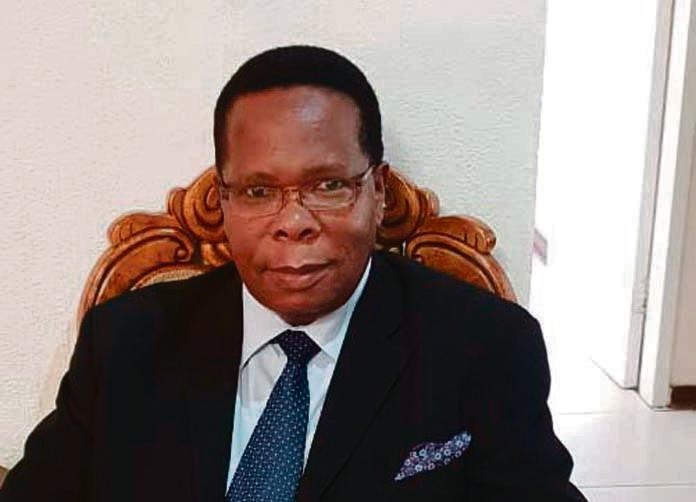
Our nation is facing a serious dilemma this academic year.
President Cyril Ramaphosa and his advisers have provided remarkable leadership so far in handling the Covid-19 coronavirus pandemic.
But the big question to ponder now is: Will we be able to save this academic year?
Reopening schools and other institutions of learning looks like a matter of life and death right now.
Let there be no doubt that this health crisis poses a serious existential threat to humankind.
Ramaphosa has extended the lockdown to the end of this month and it is unlikely that the pandemic will have subsided by then.
To the contrary, it may be starting to seriously impact on our nation, in terms of both a rise in infections and deaths due to the coming cold months – from next month until July.
With all institutions of learning currently closed, what do we do from next month? Do we restart the academic year and implement catch-up programmes?
Looking at the trajectory of this pandemic, I realistically expect to start seeing a decline in infections only around September.
If this is the case, what then do we do with this academic year?
Do we take a risk and reopen schools, colleges and universities for the sake of salvaging the academic year?
Is it a risk worth taking, given the possibility of mass infections in those spaces?
If we reopen schools and, for example, a whole matric class in one school gets infected (God forbid), will we be able to live with that?
What if, at a particular university, the whole final-year class of medical students gets infected?
Can we sleep comfortably at night knowing that this could have been avoided?
I know these are perhaps worst-case scenarios, but they are worth considering.
Before the education sector was shut down, there were already reported infection cases at institutions such as the University of Cape Town and Wits University, as well as a school in KwaZulu-Natal.
Infections are likely to spike and spread once classes resume.
I read that the department of basic education was looking at the possibilities of doing away with the June and September school holidays.
They are also considering possibly evaluating students on only 80% of the syllabus and merging this academic year and the next.
I wondered whether a nation with such a poor record in, for example, mathematics, when compared with other countries, could afford to cover only 80% of the syllabus.
I also wondered in what practical ways two academic years could be merged.
Some people seem to expect that life will be back to normal after this lockdown. No, it won’t. There is no scientific basis for that optimism.
The date, April 30, is as arbitrary as declaring that it is acceptable to have a meeting as long as such a gathering has less than 100 people.
I would love to see policymakers, academics, student leaders and parents using this time to seriously ponder what will happen to the current academic year.
This must be done in a coordinated manner. University professors know that the traditional method of teaching anatomy, for example, involves students congregating around a cadaver.
This is no longer a viable proposition in this era of social distancing.
What will the alternative be?
The nation is yearning for a coherent, meaningful and seriously considered post-lockdown plan for education.
In short, we need serious scenario planning for the future.
Leaders in education must realise that the sector cannot return to “business as usual” without exposing students and teachers to the risk of infection and death.
That must be avoided at all costs – with smart thinking and forward planning.
We need a robust engagement of all education leaders before it is too late.
In 1976, when I was a university student, we endured a significantly disrupted academic year due to the necessary political upheavals of that era.
Fortunately, with discipline and application some of us pulled through that challenging time.
I have no doubt that even this year, with a disrupted academic programme, students with discipline and application will pull through even if the academic year is truncated.
What should not be done though is to lower standards for the sake of getting students to pass. That will lead to a ripple effect, which will entrench mediocrity in society.
We cannot afford to graduate underprepared medical students and let them loose into society.
We cannot afford to graduate undercooked civil engineers from our universities.
As we investigate all options of salvaging this academic year, our eyes must be fixed on the objective of producing graduates of international standard.
If there is no scenario planning happening, then leaders must prioritise that now.
Education leaders must be at the forefront of strategic thinking about the future of schooling in this year of Covid-19.
As a nation, we need an urgent discussion involving all stakeholders on the immediate future of the education sector, for the sake of our children.
We need this engagement now. In our history, there has never been a need for more visionary leadership in education than at this moment.
So, will we let the students and teachers return to schools and universities next month?
That remains the million-dollar question.
. Dyasi is a scientist, educationist, former vice-president of the SA Council for Natural Scientific Professions, and former campus principal and deputy vice-chancellor of the Medical University of SA (now Sefako Makgatho Health Sciences University)
Is it worth reopening schools, colleges and universities if our children risk being infected with or killed by Covid-19?
SMS us on 35697 using the keyword RISK and tell us what you think. Please include your name and province. SMSes cost R1.50. By participating, you agree to receive occasional marketing material




 Publications
Publications
 Partners
Partners








